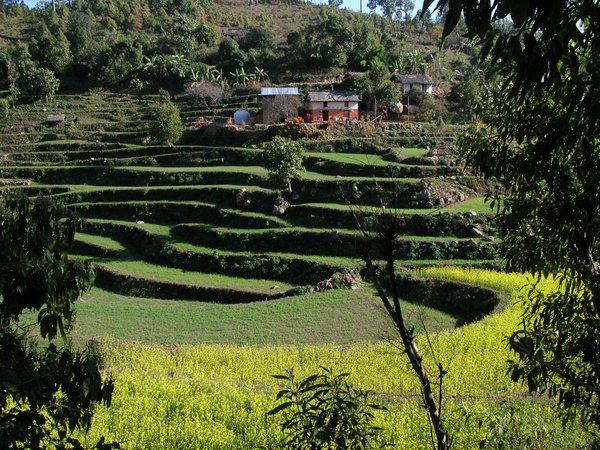- Share this article
- Subscribe to our newsletter
Organic farming drives sustainability in global agriculture
The internationally renowned specialist journal Nature Sustainability published an article in April 2019 on new insights on the role of organic farming. Eleven international experts, including Frank Eyhorn of the Swiss development cooperation organisation Helvetas and Adrian Muller from the Research Institute of Organic Agriculture FiBL, demonstrate that organic farming is no longer an irrelevant niche but plays an important role in making our food system fit for the future.
Climate change, biodiversity loss and rural poverty are arguably great challenges on a global scale nowadays. Experts agree that the way that we produce and consume food urgently has to change if we are to master these challenges.
However, getting there is a hotly disputed issue. Do we have to make conventional agriculture more sustainable in a step-by-step process, or should we promote alternative systems such as organic farming? The eleven experts maintain that both approaches can go hand in hand and support and inspire each other. This new view enables politics to consistently focus on the Sustainable Development Goals (SDGs) of the United Nations global Agenda 2030.
The authors of the Nature Sustainability article therefore propose a combination of measures that provide special support for sustainable systems, create economic incentives for environmentally friendly production methods and ban particularly harmful practices. Thus it certainly makes sense to step up support for organic farming, restrict subsidies to environmentally friendly modes of production and prohibit harmful pesticides, they argue.
A paradigm shift is needed
“For too long, we have been trapped in heated debates on which technology can feed the world. Transcending ideological barriers and vested interests now needs to be at the top of the agenda to accelerate the necessary shift,” says lead author Frank Eyhorn from the Swiss development cooperation organisation Helvetas. Co-author Adrian Muller from the Research Institute of Organic Agriculture FiBL adds: “We need coherent policies to achieve sustainable food systems. We can no longer afford seemingly cheap food resulting in high environmental costs.”
A paradigm shift is already underway. The UN Food and Agriculture Organization FAO recently recognised the role of agro-ecological systems, such as organic farming, in addressing the huge challenges of the current food system. Governments in Germany, Austria, India and Kyrgyzstan, for example, are implementing policies and action plans to promote organic farming. A critical mass of scientists, farmers, policy-makers, businesses and civil society organisations will be needed for making the change towards sustainable food systems happen at scale.
(Helvetas/FiBL/wi)
More information:
Reference:
Frank Eyhorn, Adrian Müller, John P. Reganold, Emile Frison Hans R. Herren, Louise Luttikholt, Alexander Müller, Jürn Sanders, Nadia Scialabba, Verena Seufert, Pete Smith (2019). Sustainability in global agriculture driven by organic farming. Nature Sustainability





Add a comment
Be the First to Comment